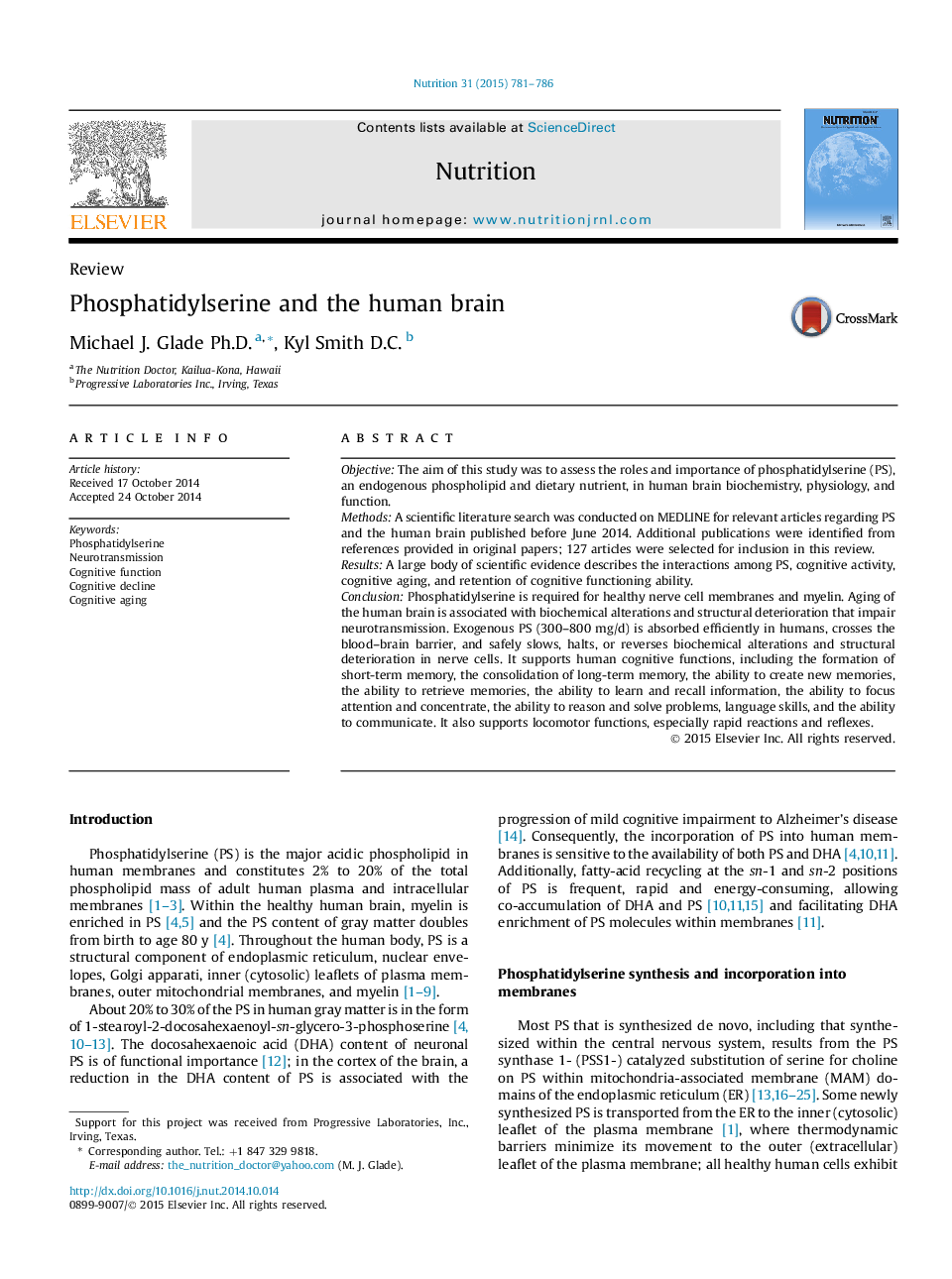| Article ID | Journal | Published Year | Pages | File Type |
|---|---|---|---|---|
| 6089022 | Nutrition | 2015 | 6 Pages |
ObjectiveThe aim of this study was to assess the roles and importance of phosphatidylserine (PS), an endogenous phospholipid and dietary nutrient, in human brain biochemistry, physiology, and function.MethodsA scientific literature search was conducted on MEDLINE for relevant articles regarding PS and the human brain published before June 2014. Additional publications were identified from references provided in original papers; 127 articles were selected for inclusion in this review.ResultsA large body of scientific evidence describes the interactions among PS, cognitive activity, cognitive aging, and retention of cognitive functioning ability.ConclusionPhosphatidylserine is required for healthy nerve cell membranes and myelin. Aging of the human brain is associated with biochemical alterations and structural deterioration that impair neurotransmission. Exogenous PS (300-800 mg/d) is absorbed efficiently in humans, crosses the blood-brain barrier, and safely slows, halts, or reverses biochemical alterations and structural deterioration in nerve cells. It supports human cognitive functions, including the formation of short-term memory, the consolidation of long-term memory, the ability to create new memories, the ability to retrieve memories, the ability to learn and recall information, the ability to focus attention and concentrate, the ability to reason and solve problems, language skills, and the ability to communicate. It also supports locomotor functions, especially rapid reactions and reflexes.
